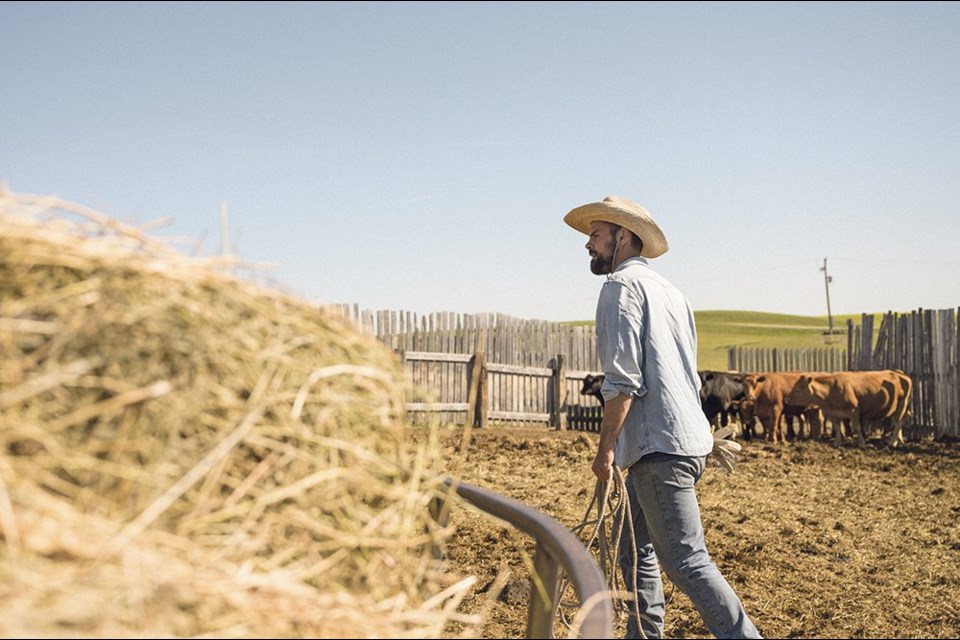The federal government is prepared to pump an extra $100 million into drought assistance for western farmers who are facing the worst drought in more than a century this summer.
“If I was looking at the soil moisture for 100 years and rank it from driest to wettest, the current conditions right now would lie between one and two (for driest),” said Adnan Akyuz, North Dakota state climatologist, who tracks NASA climate data. “The dryness is unprecedented, right now. It is the driest nine-month period on record, since 1895.”
Many parts of Manitoba, Saskatchewan and Alberta have received less than normal precipitation for nearly two years. According to weather forecasts, temperatures will hit 31 degrees next week in southern Manitoba and Saskatchewan with no rain in sight.
“It’s extremely stressful on people — you can hear it in people’s voices,” said Melanie Wowk, chair of the Alberta Beef Producers, whose ranch is in the Two Hills area east of Edmonton. “It’s the worst I’ve seen it in my 28 years up here, especially the heat.”
A round bale of hay that would have cost $35 a year ago is now selling for three times that. Beef ranchers are eyeing the burnt crops of neighbouring farms as possible cattle feed.
“ There’s a lot of crops out there right now that don’t look like they’re going to be viable, so we are really, really hoping that we can use a lot of those crops as a feed source,” Wowk said.
The federal money will match provincial AgriRecovery submissions on the 60-40 cost-shared basis outlined under the Canadian Agricultural Partnership and will be available as soon as “full assessments are completed,” according to Agriculture Canada, August 6.
AAFC will work with Manitoba, Ontario, Saskatchewan, Alberta and British Columbia to complete the assessments of the drought, then work to finalize an agreement with each province on support programs.
This may include direct assistance to livestock producers for added costs of obtaining livestock feed, transportation and water. This is needed, said Kelcy Elford, chair of the Saskatchewan Stock Growers Association.
Elford said there is little feed available in the province, and prices keep climbing. He said one producer located straw bales about 340 kilometres away and paid $100 per bale. Adding other ingredients to the straw to make a ration will extend winter feeding costs to $5 per head per day, he estimated.
Federal minister Marie-Claude Bibeau said provinces affected by drought are encouraged to invoke the late participation provision of AgriStability to allow producers who did not enroll to access program support.
She said Manitoba recently invoked this late participation provision.
“Severe drought conditions, sustained high temperatures, and wildfires continue to create stress and uncertainty for our producers. That is why the Government of Canada is taking action to secure funding under AgriRecovery, to ensure continuous support is provided to farmers as quickly as possible,” Bibeau said.
Producers can also apply for interim payments under AgriStability to help with immediate financial challenges.
The Federal government and the governments of Saskatchewan, Alberta and Manitoba have agreed to increase the 2021 AgriStability interim benefit payment percentage from 50 percent to 75 percent.
The latest offer the federal government made to the provinces raises AgriStability compensation rate from 70 percent to 80 percent, which would provide farmers across the country an additional $75 million per year.
The designation for Livestock Tax Deferral has been expanded to additional prescribed drought regions in British Columbia, Alberta, Saskatchewan and Ontario.
The designation will allow beef producers who are forced to sell part of their breeding herd due to drought conditions to defer the taxation on the income to a future time when they are rebuilding.
AgriInsurance is designed to help farmers manage production and quality losses caused by adverse weather conditions, including drought.
Minister Bibeau said the federal government supports immediate bilateral adjustments to the cost-shared AgriInsurance program by the Prairie provinces, to make drought-damaged crops available for feed.



